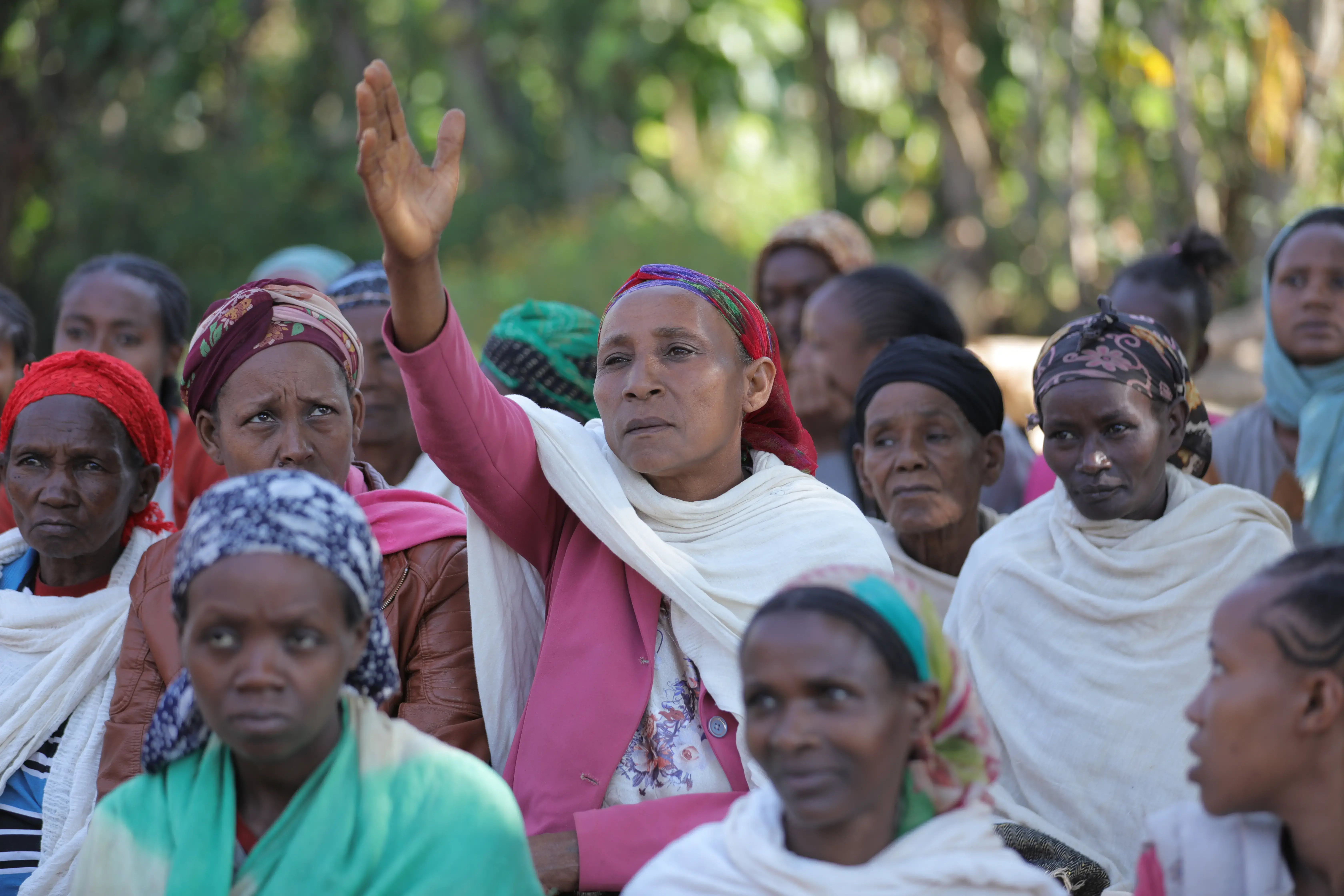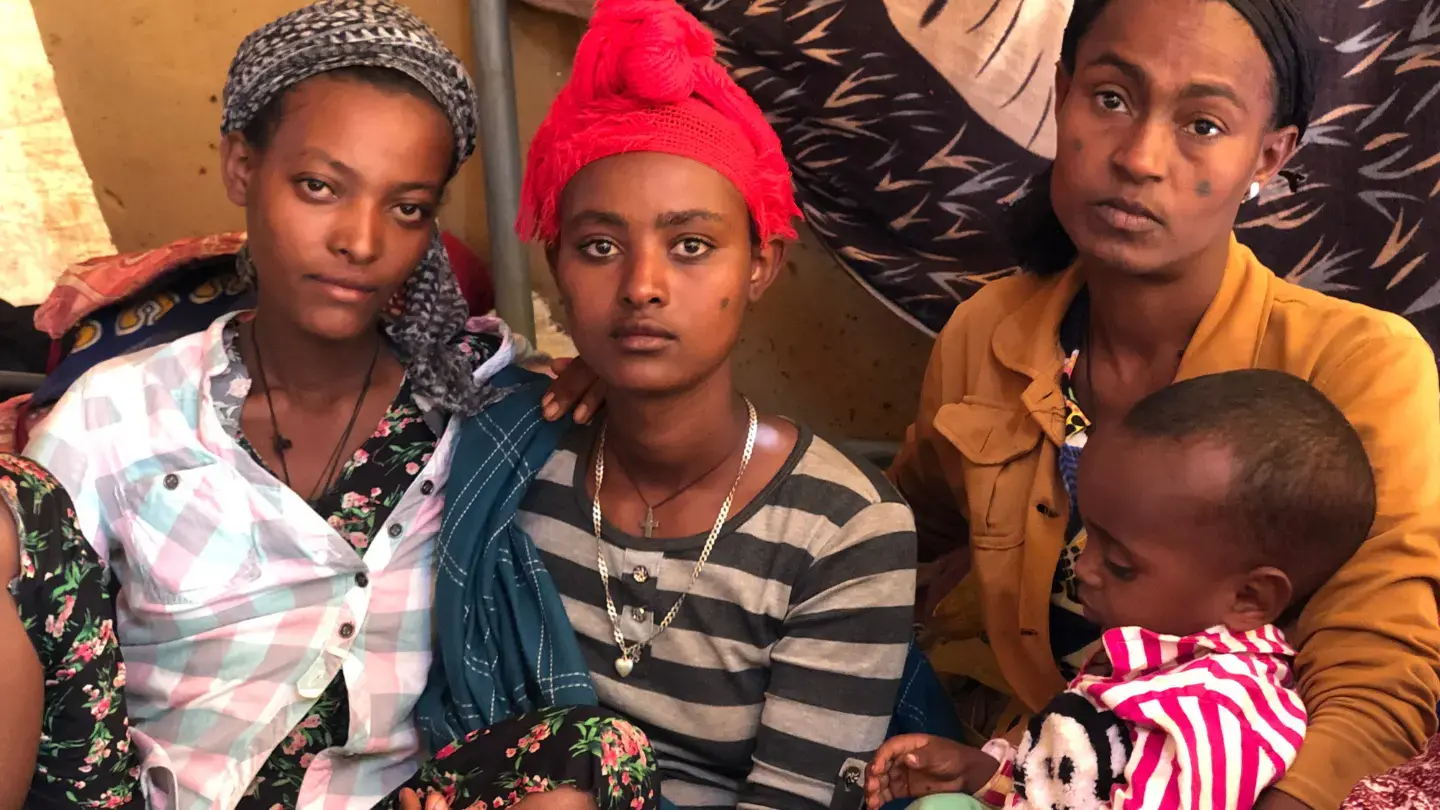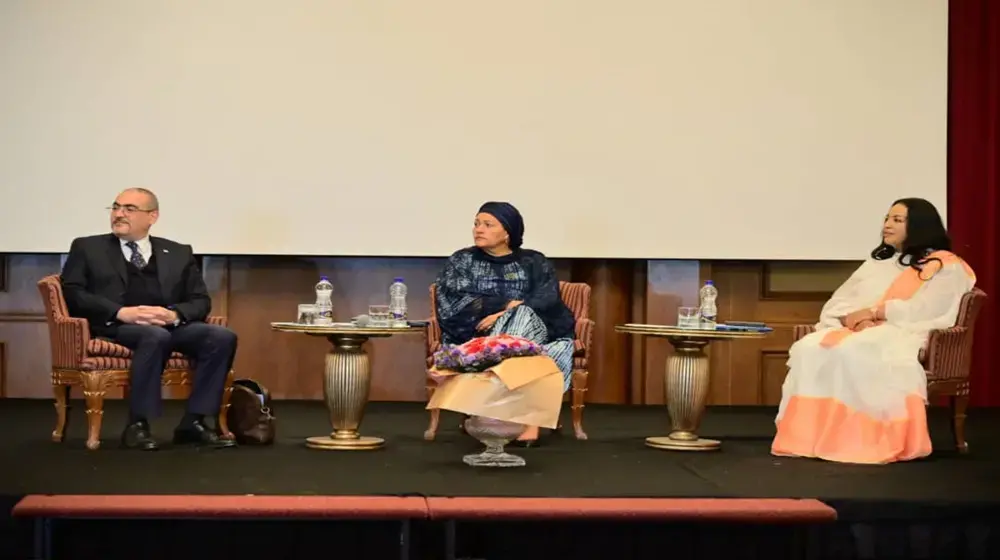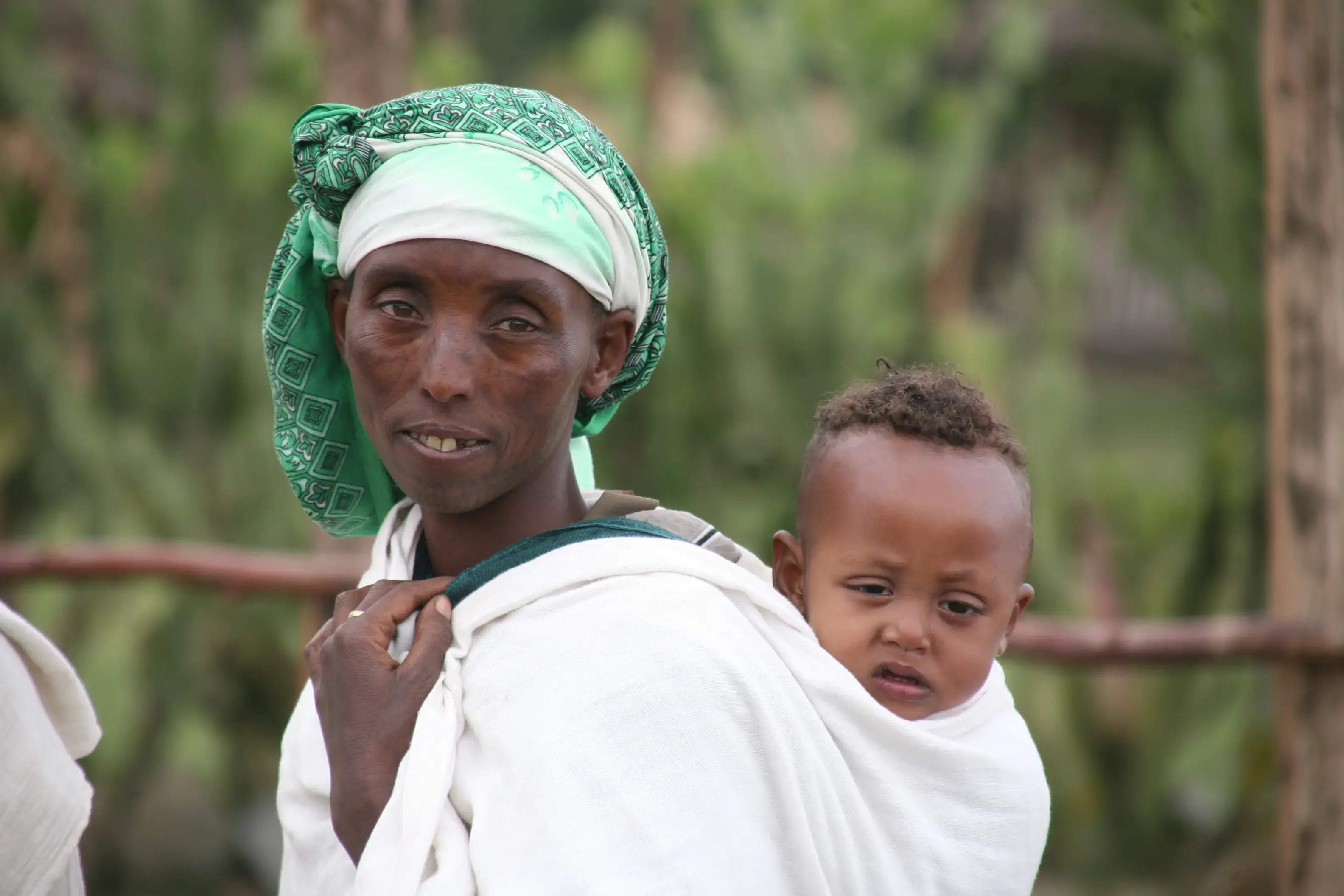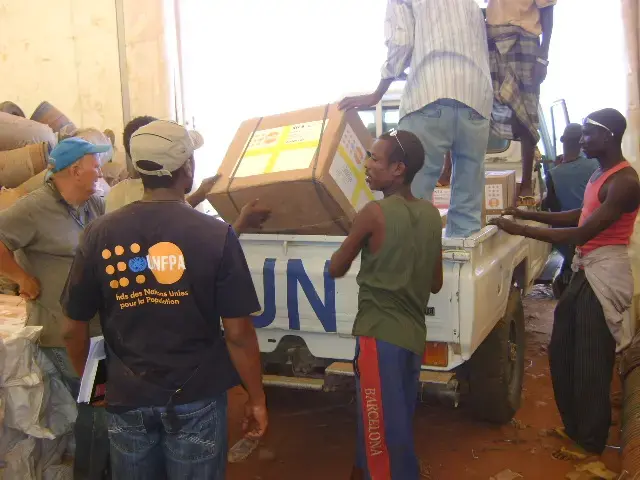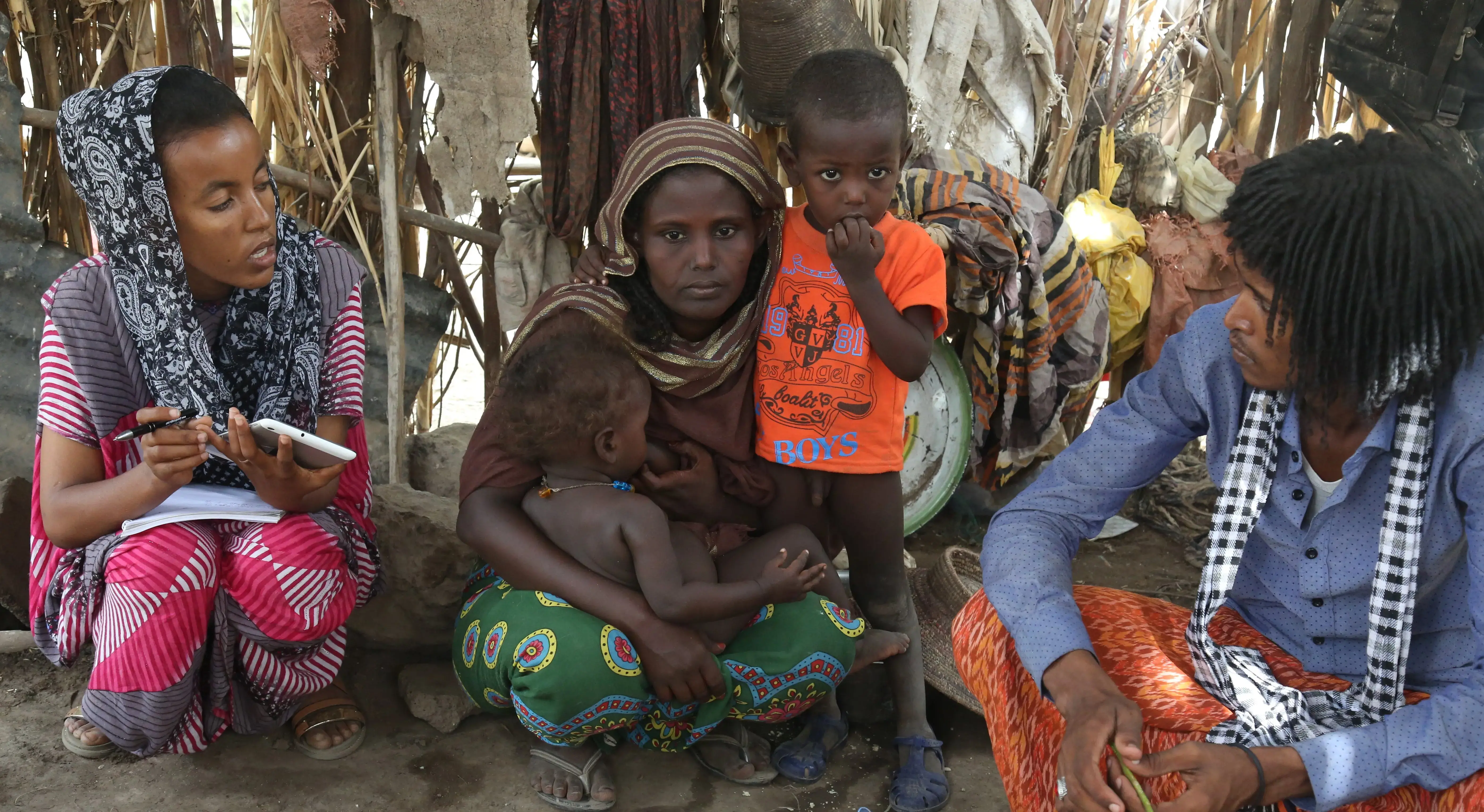35 percent of ever-married women aged 15-49 years, experience physical, emotional, or sexual violence from their husband or partner. 68 percent of women agree that wife-beating can be justified.
About 65 percent of women aged 15-49 years are circumcised, with the highest rate (99 percent) in the Somali region.
The median age of marriage is 16.5 years, with 40 percent of women before the age of 18, and 20 percent before age of 15.
The programme aims at strengthening multi-sectoral capacity to prevent, protect and provide services for survivors of Gender-Based Violence in all settings and enhance the ability of the government and key stakeholders to respond to the elimination of harmful practices, through supporting:
- Engagement of multiple stakeholders, including civil society, faith-based organizations, and men and boys, to prevent and address gender-based violence
- Provision of comprehensive sexual and reproductive health services, including Gender-Based Violence to survivors
- Continuous functioning of the inter-agency and national coordination body at the federal and regional levels
- Prevention and protection services and care related to child marriage and female genital mutilation
In advancing gender equality and women’s empowerment, UNFPA is providing support to strengthen community response to promote and protect the rights of women and girls and strengthen the institutional response. We support establishing and operating safe houses, rehabilitation centers, and one stop centers to reach out and provide comprehensive response services to GBV survivors. We are also providing support to increase institutional capacity for the development and implementation of legal and policy frameworks aimed at promoting and protecting the rights of women and girls against harmful practices and gender-based violence.
UNFPA is supporting the National Alliance to End Child Marriage and Female Genital Mutilation in realizing the country’s commitment to end harmful practices by 2025.
Technical support is also being provided to the national coordination mechanism through women-led associations and Faith-based Organizations to engage men and boys in addressing violence against women and gender inequality manifesting in different forms and at different levels.

